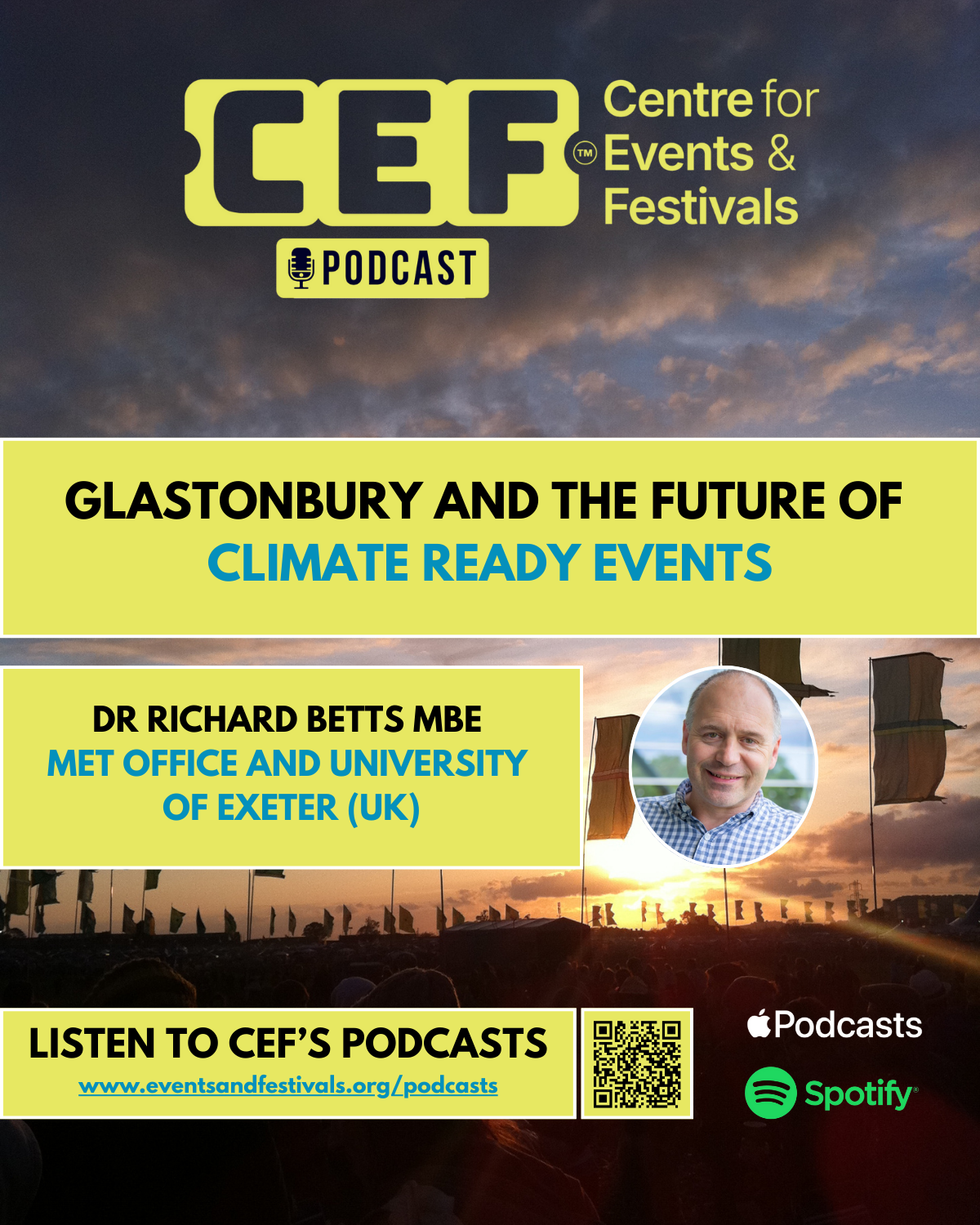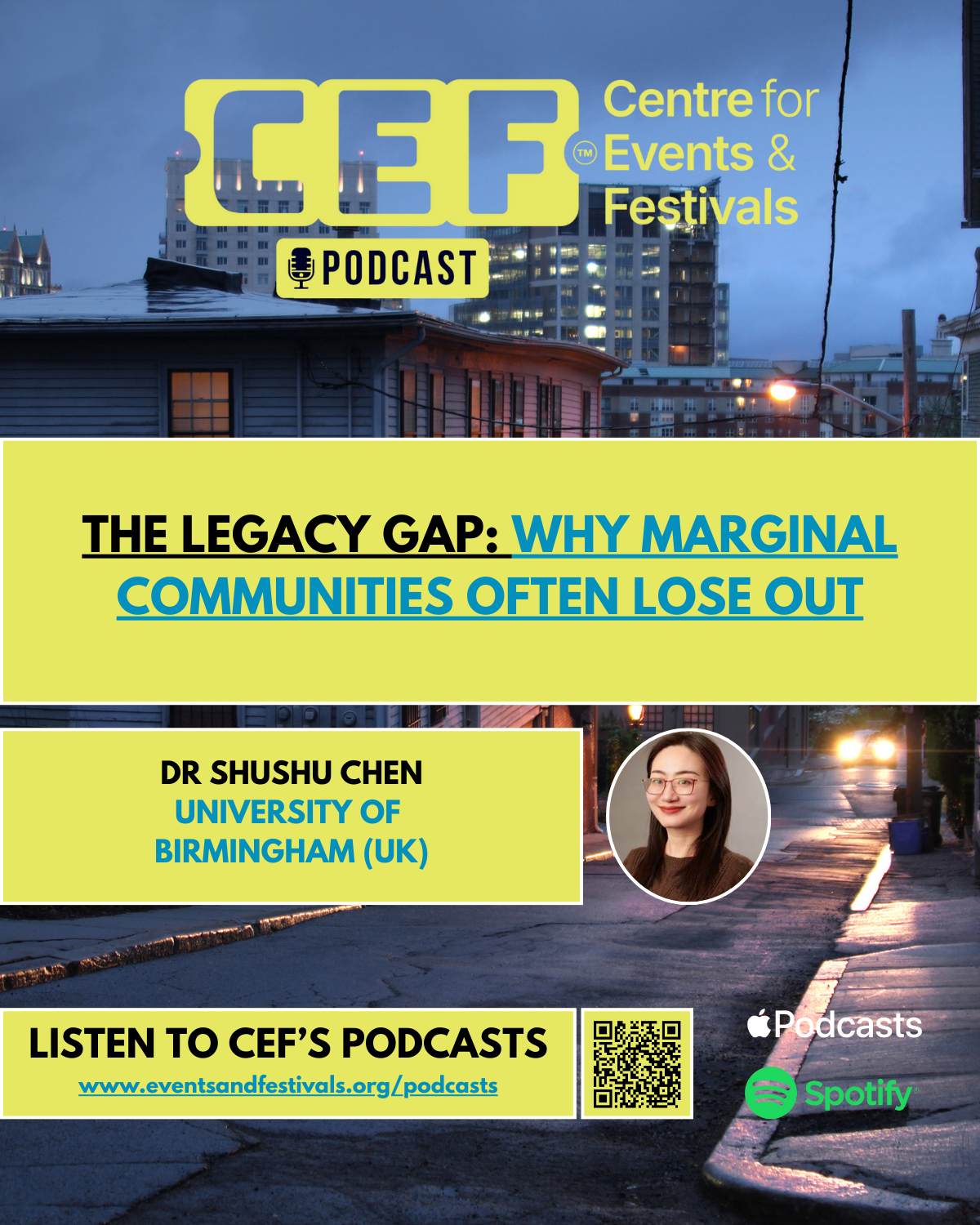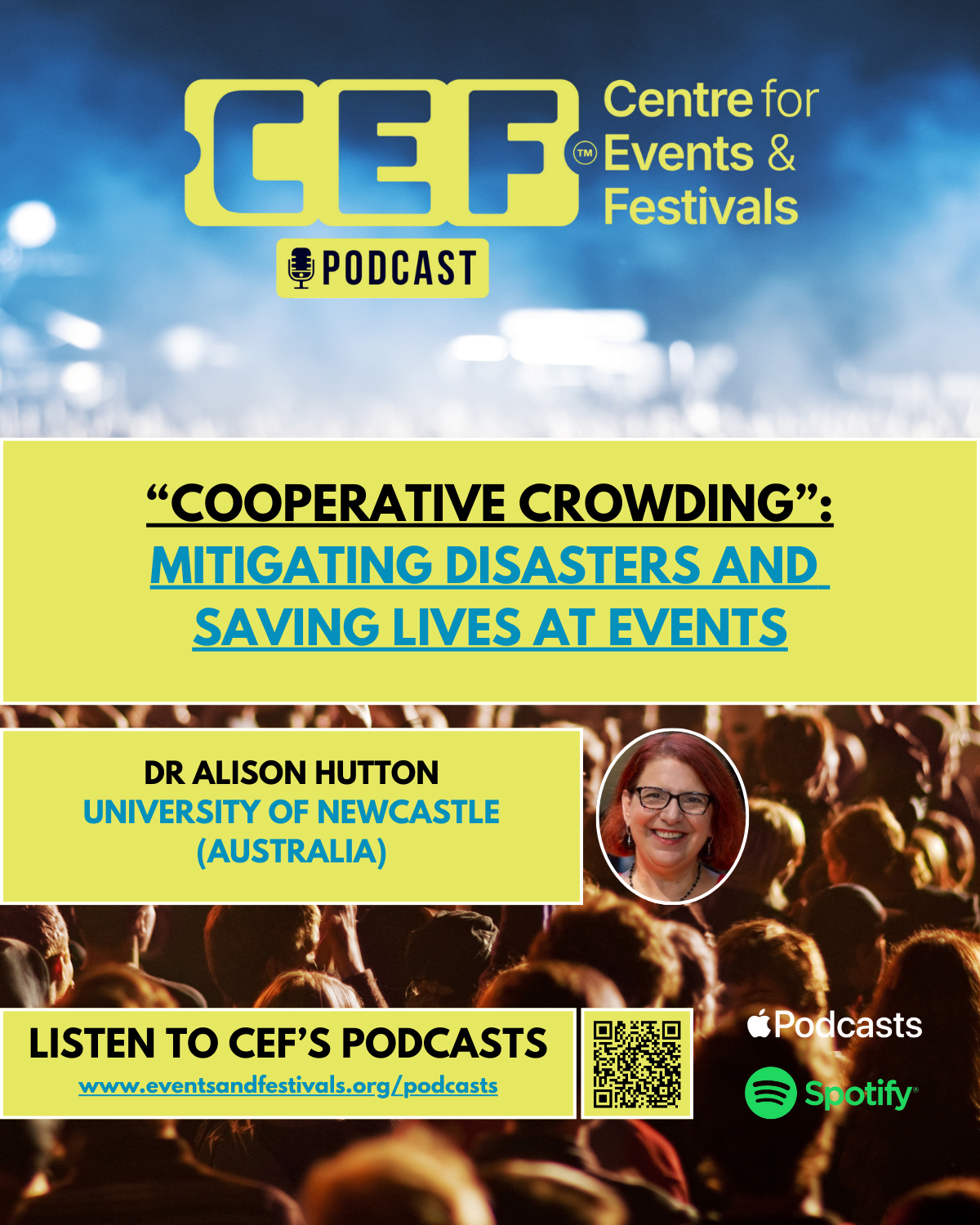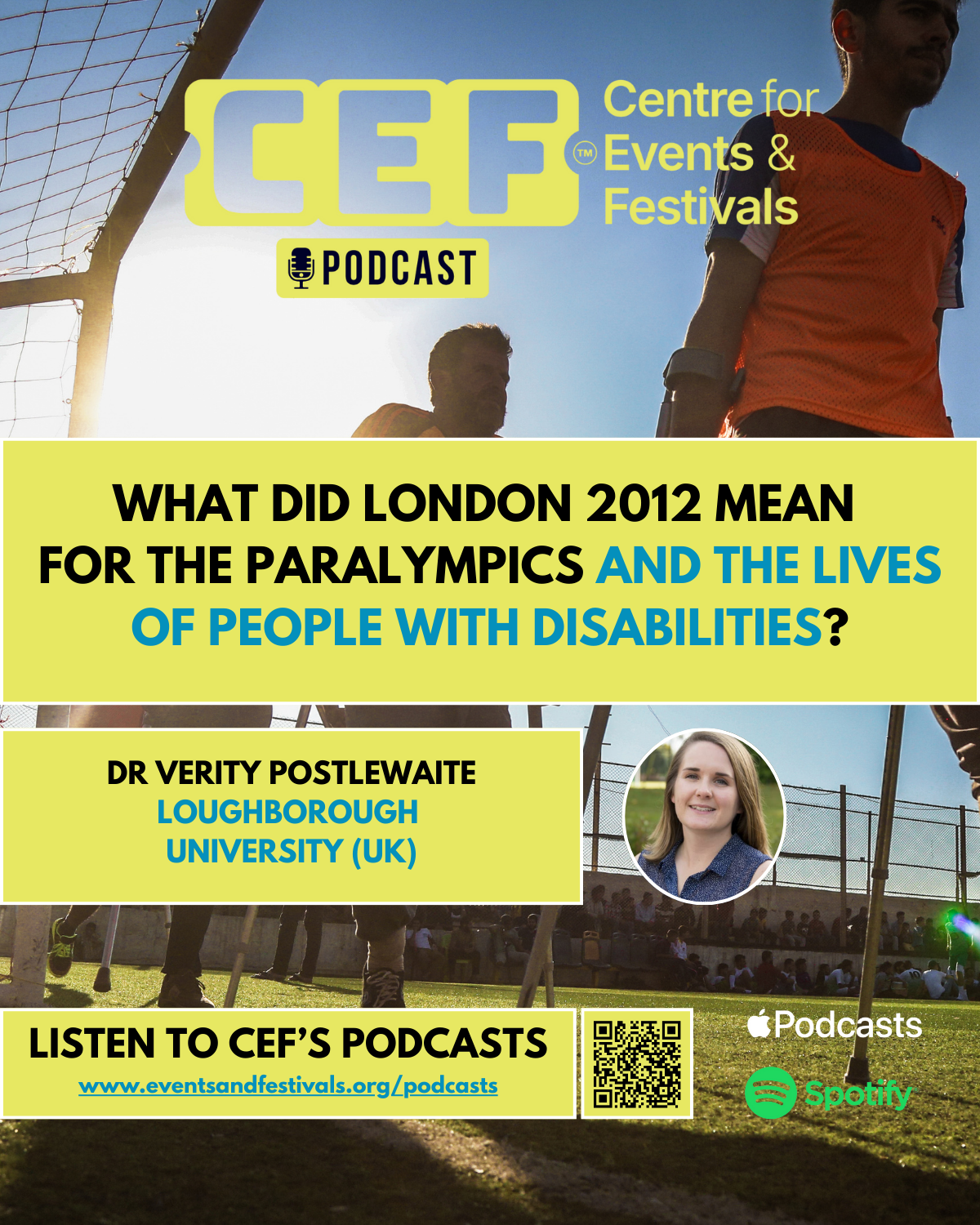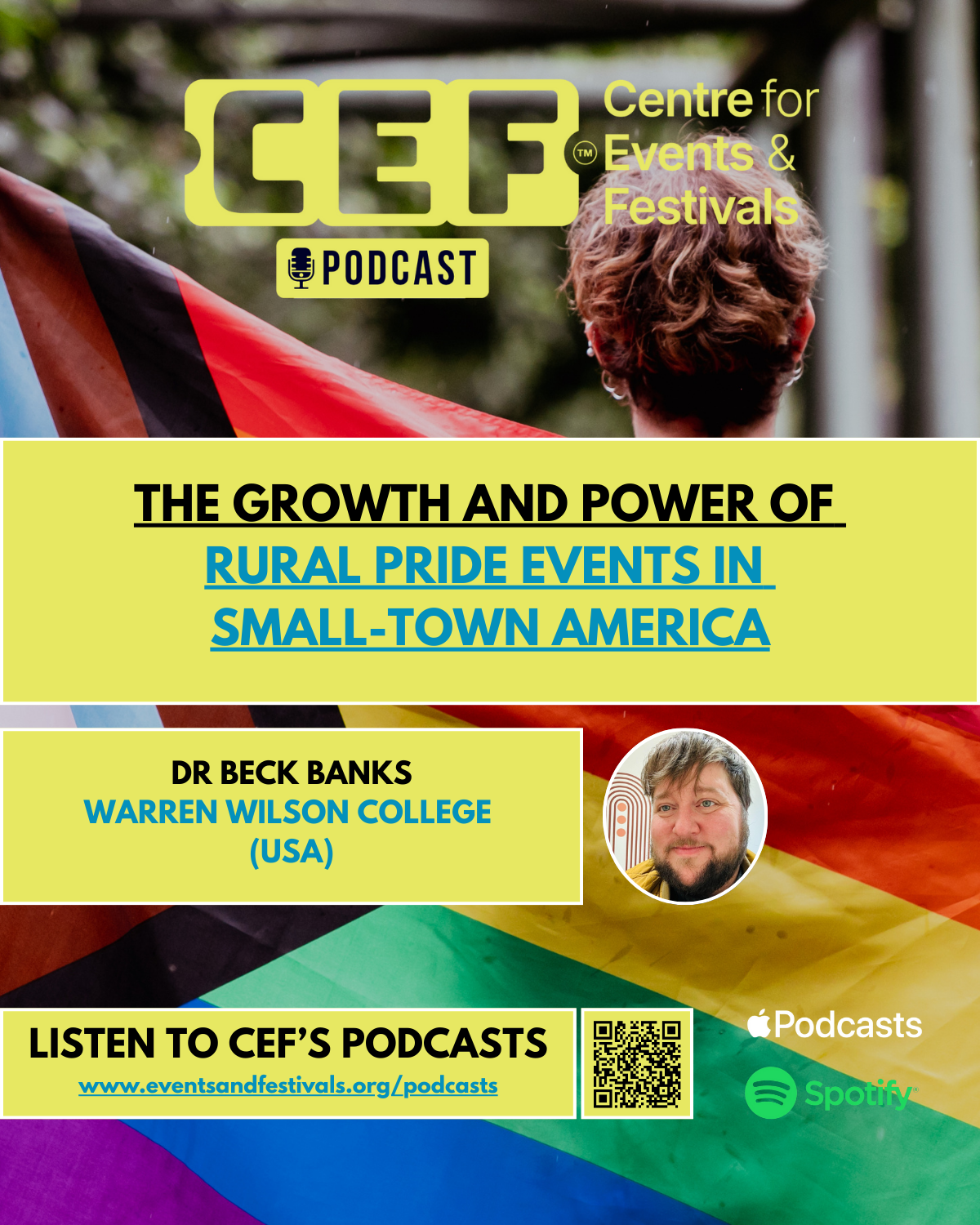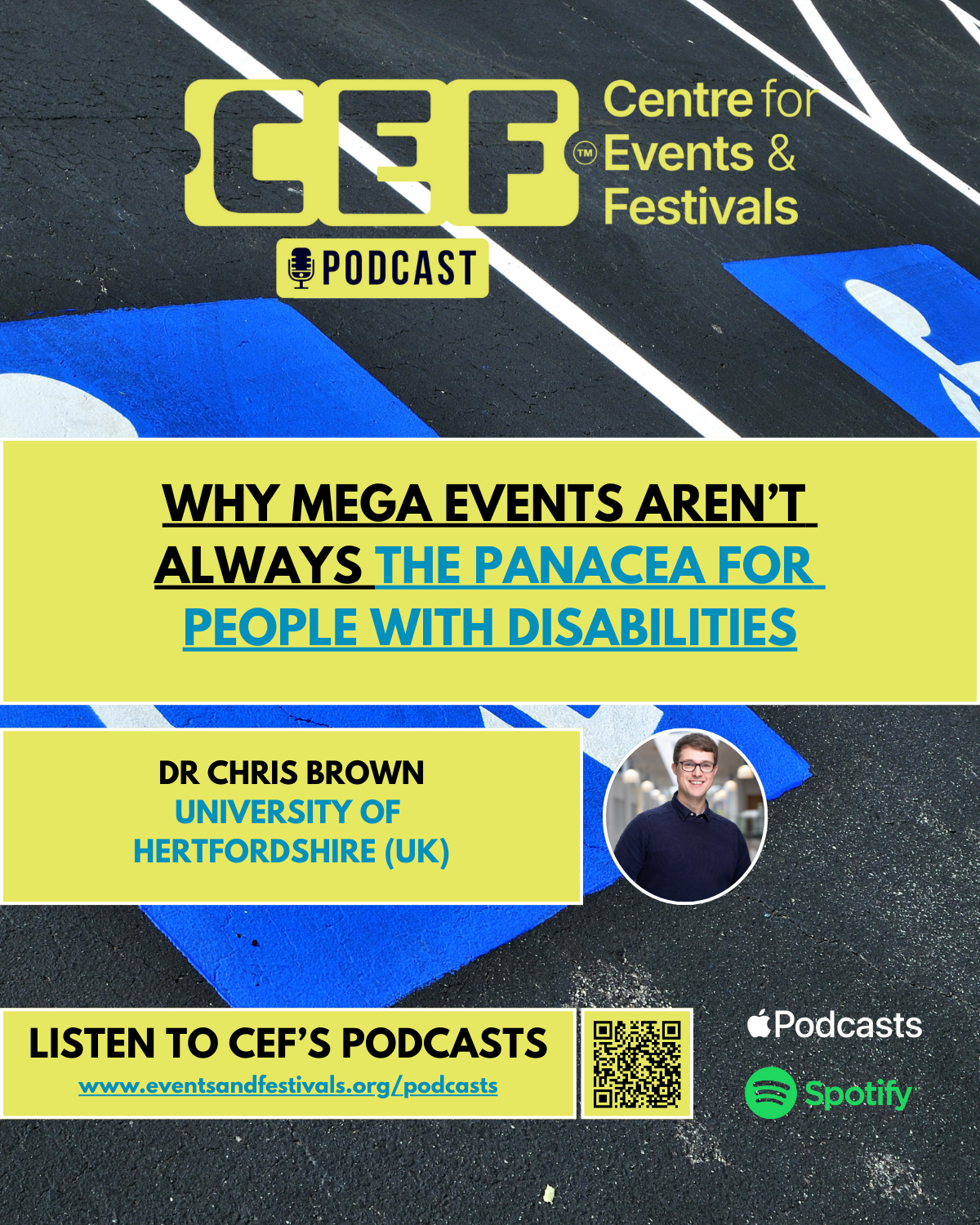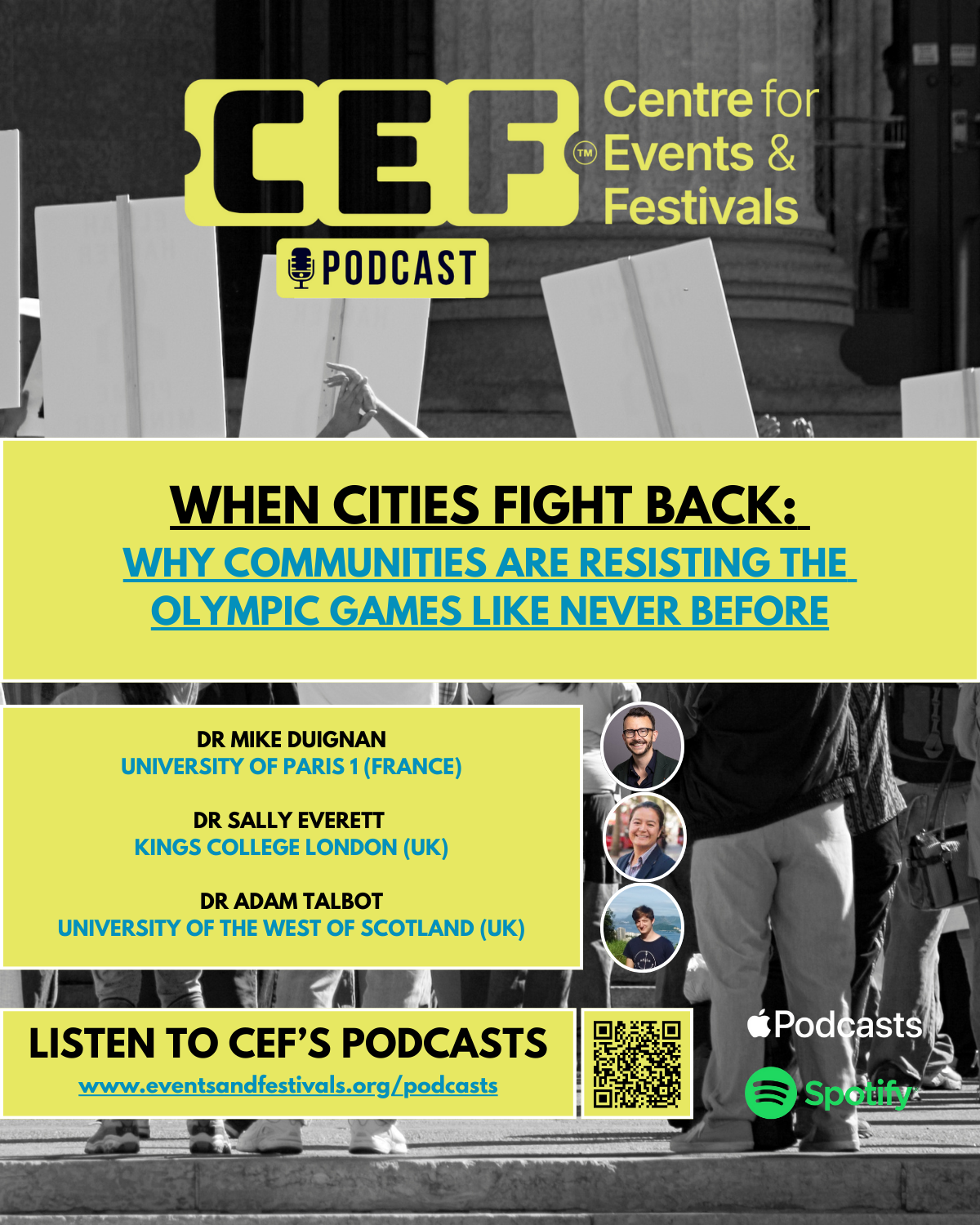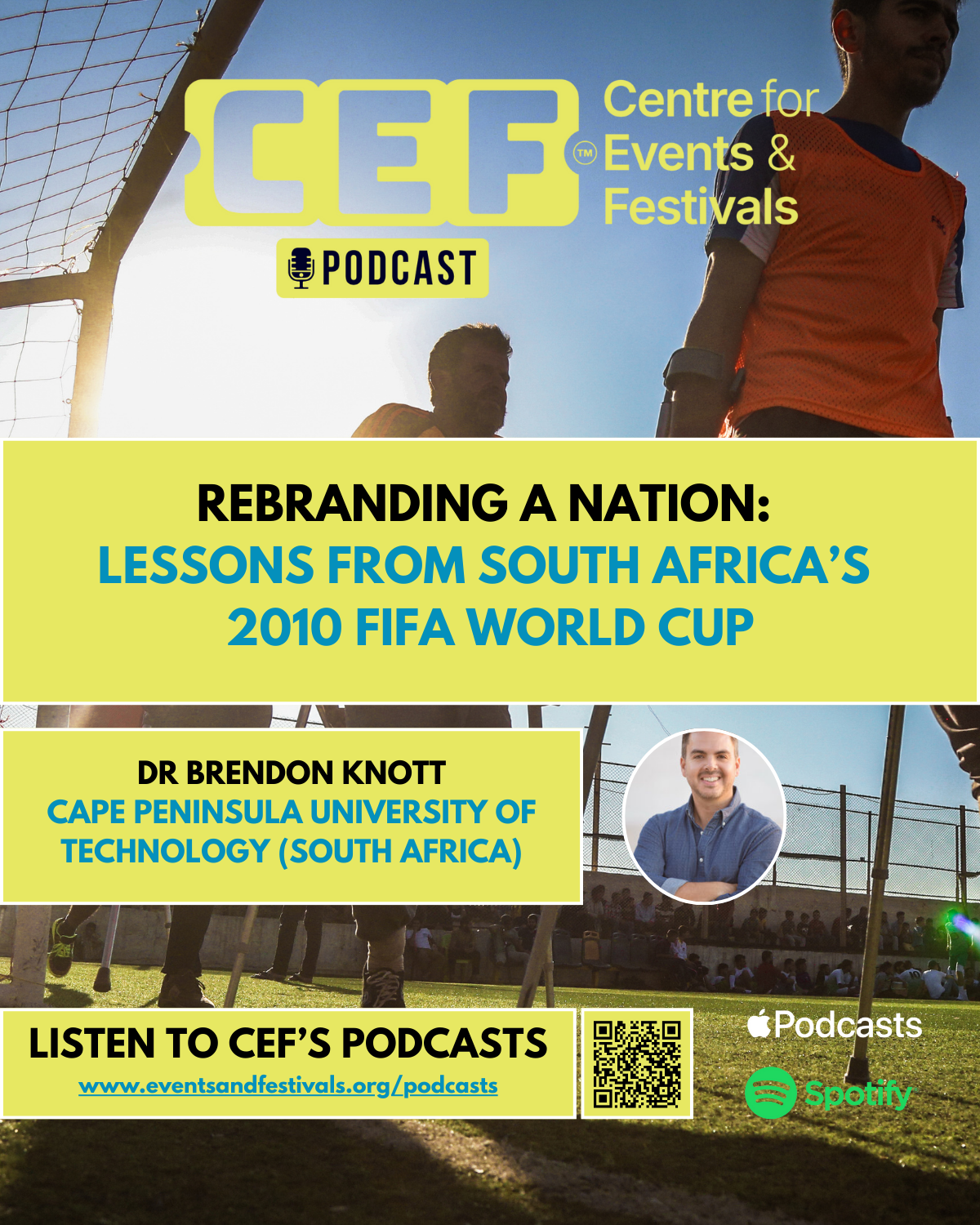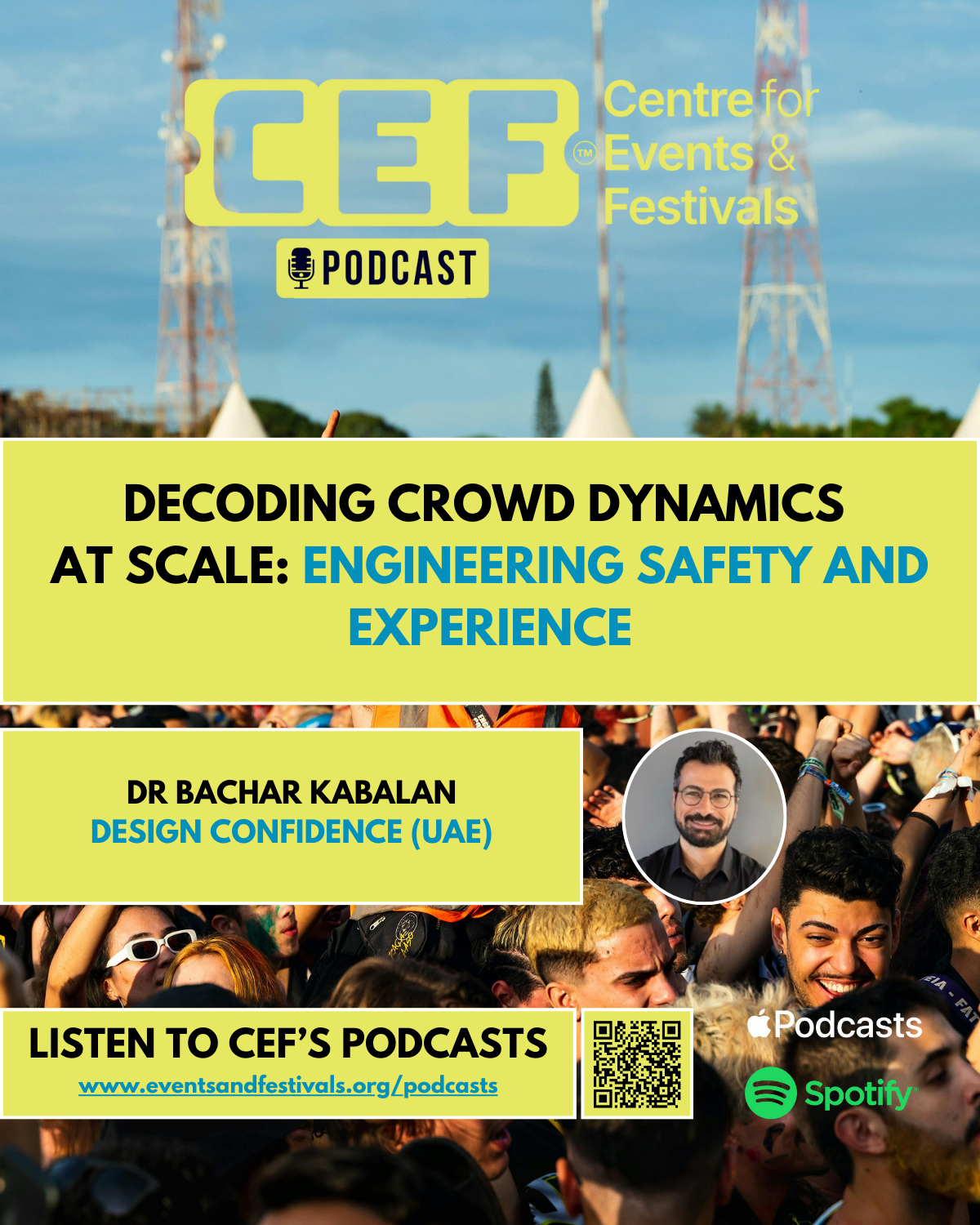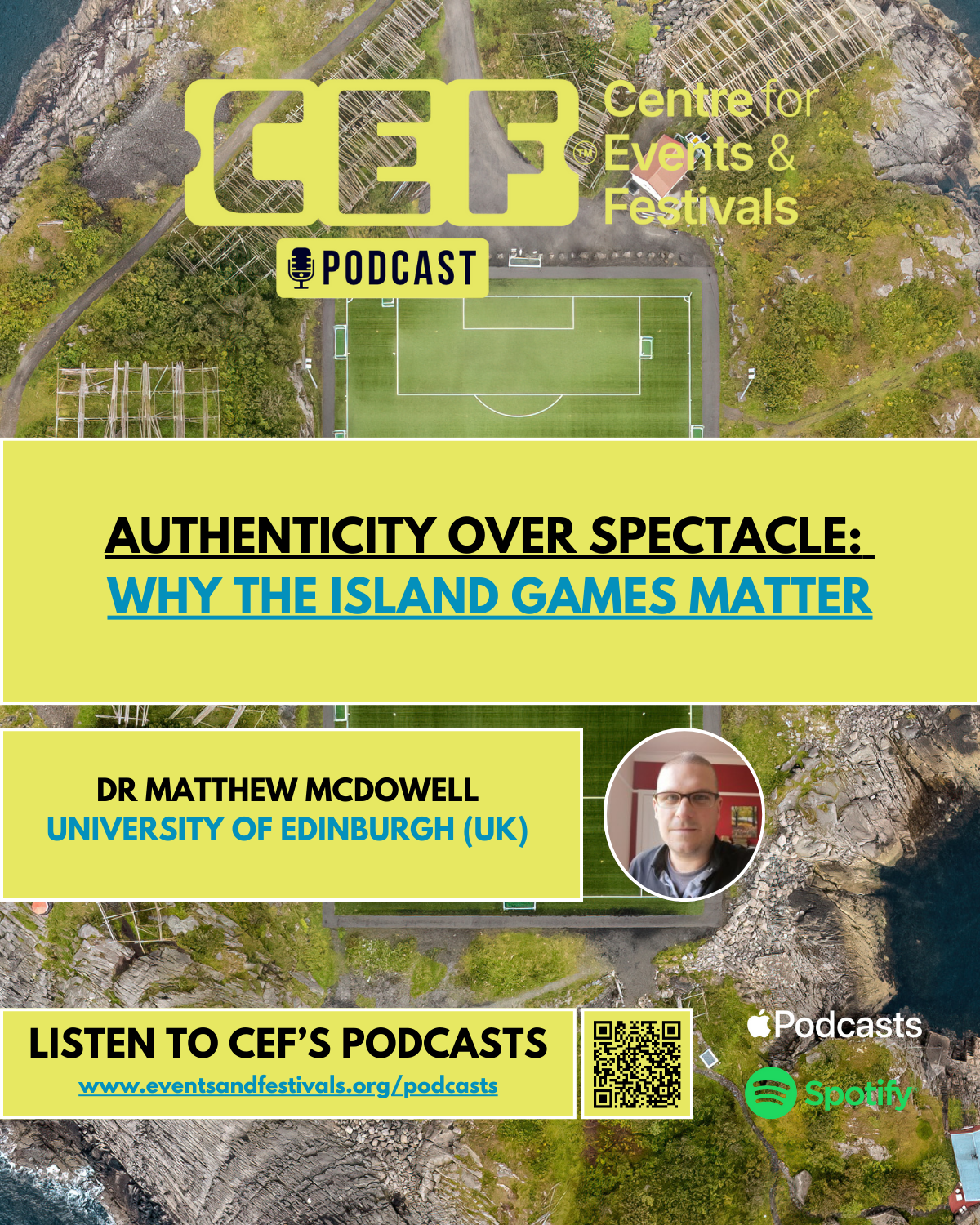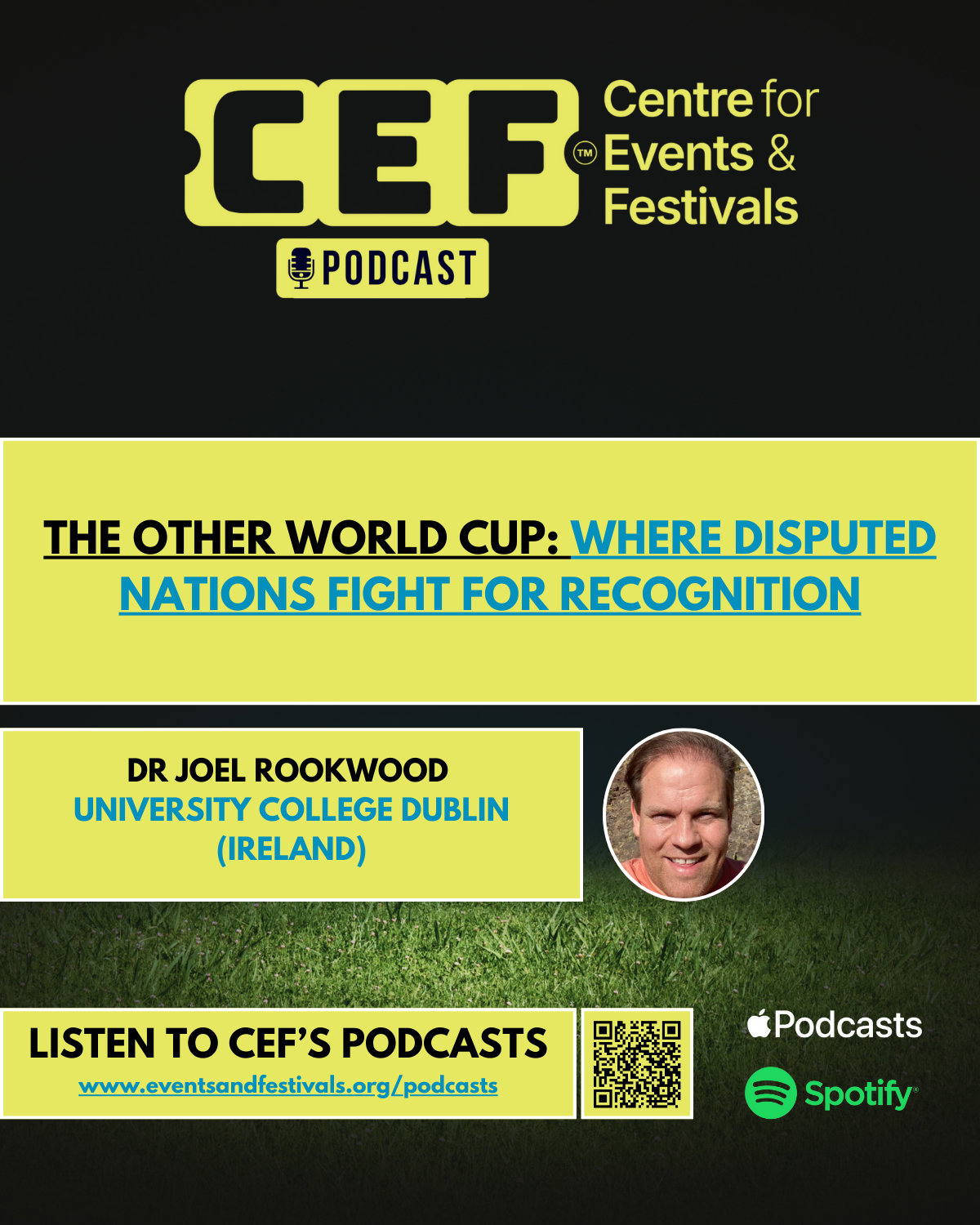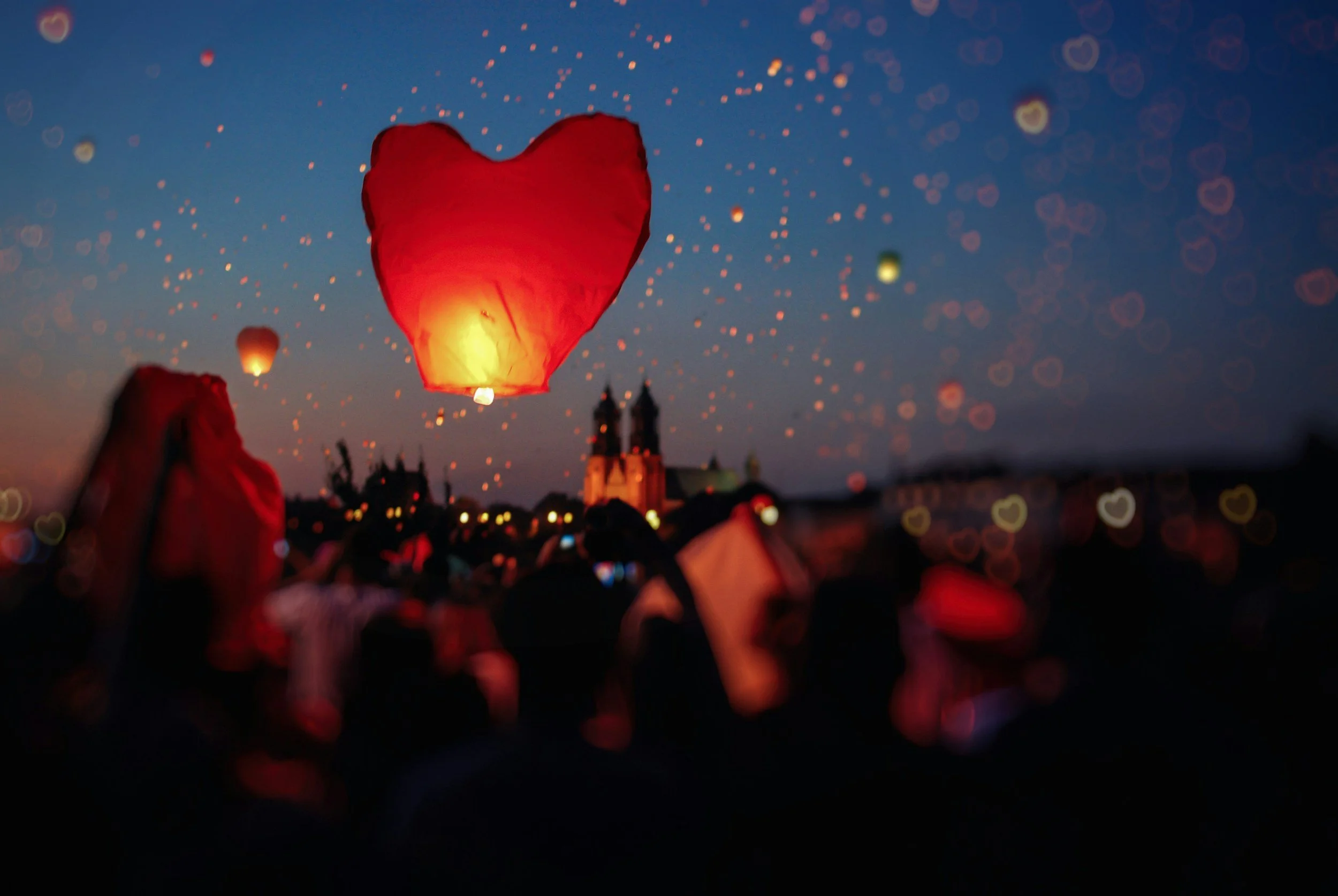
CEF PODCASTS
-
Glastonbury is famous for its iconic music, mud-soaked fields, and festival spirit—but could it also be a blueprint for surviving the climate crisis? In this episode, Dr Mike Duignan talks with climate scientist Dr Richard Betts about how major festivals like Glastonbury are becoming microcosms of our global environmental challenges. From renewable energy and green transport to heat adaptation and eco-activism, festivals are experimenting with real-world climate solutions. Together, they unpack whether these spaces of joy and escape can also drive serious environmental change. Are audiences and organisers doing enough? Should ticketing come with a green travel contract? And what can cities learn from Glastonbury’s sustainability model? Tune in for a thought-provoking look at the future of events in a warming world—and why “edutainment” might be our best bet yet.
Sustainability | Environmentalism | Glastonbury | Music Festivals
-
Why do the events that truly change lives, foster inclusion, and rebuild divided communities struggle hardest to survive? From the Edinburgh Festival Fringe to Derry’s City of Culture, cultural festivals have delivered powerful legacies—driving regeneration, strengthening social bonds, and projecting national values globally. Yet, while these festivals scramble for basic funding, governments continue to pour billions into mega sporting events with questionable long-term benefits. In this powerful critique, Shona McCarthy, former CEO of the Edinburgh Festival Fringe Society, challenges outdated event funding models. She calls for new success metrics, equitable investment, and cultural participation embedded in social policy. If policymakers are serious about real, people-centred legacy, the solution is clear: sustained investment in culture, creativity, and communities—not just concrete, stadiums, and fleeting spectacle.
Culture | Festivals | Social Legacy | Regeneration | Funding
CEF invites subject matter experts — from professors, practitioners, to policy makers
— to share scientific research, industry insights, and inspiring stories.
-
Dr. Trudy Barber joins Dr. Michael Duignan to explore the provocative future of live music in an era of avatars, AI, and virtual performance. From ABBA Voyage to sex robots, holograms to immersive gigs, Barber draws on decades of digital experimentation to ask whether we’re witnessing a radical reinvention—or the slow demise—of live music's soul. They unpack nostalgia, authenticity, cyberpsychology, and the uncanny valley, all while interrogating the ethics and creativity of AI-driven cultural production. A must-listen for anyone curious about how technology is reshaping not just music, but what it means to be human.
Live Music | Virtual Reality | Artificial Intelligence | Audience Experience | Authenticity
-
The Olympics promise legacy—but who actually benefits? In this compelling episode, Dr. Judith Mair joins Dr. Michael Duignan to explore the complex realities behind Olympic-led urban transformation, focusing on Tokyo 2020 and the road ahead to Brisbane 2032. From gentrification and displacement to truth-making and indigenous inclusion, they interrogate the disconnect between promised legacies and lived experiences. Judith challenges tokenistic consultation, reveals governance blind spots, and argues for grassroots-first approaches to legacy. If you're tired of polished Olympic PR and want to understand what really shapes host cities, this conversation pulls back the curtain.
Culture | Festivals | Social Legacy | Regeneration | Funding
-
Does elite sport truly inspire everyday people to get more active? In this episode, Dr Mike Duignan speaks with Dr Georgia Teare, Dr Girish Ramchandani, and Dr Luke Potwarka about their recent article, The Trickle-Down Illusion, based on UEFA Euro 2020. Using comparative data from across 11 European host nations, they critically assess the widely held belief that mega-events boost grassroots sport participation. Their findings challenge the assumption that symbolic nationalism, athlete success, or event visibility alone translate into widespread community engagement. Instead, the discussion reveals how fragmented governance, structural inequalities, and the absence of coordinated legacy strategies continue to undermine participation outcomes—especially among underrepresented groups. From pandemic disruptions to policy shortfalls, the episode unpacks why the 'trickle-down effect' remains more myth than measurable impact, and what must change if sport events are to deliver genuine social return. A vital listen for policymakers, sport managers, and future event bidders.
Mega-Events | Grassroots Participation | Sport Policy | Social Impact | Legacy
-
Behind the glittering spectacle of the Olympic Games lies a complex and troubling reality. In this episode, Professor Helen Jefferson Lenskyj, a leading critic of the Olympic movement, exposes how the so-called “Olympic industry” masks corruption, authoritarianism, and human rights abuses beneath rhetoric about unity, peace, and sporting excellence. We unpack how host city selection is dominated by opaque deals and political influence, how displaced communities and marginalised groups pay the price, and why public trust in the Games is collapsing. Lenskyj argues that rather than fostering global solidarity, the IOC has become an unaccountable, profit-driven organisation that resists meaningful reform. From Beijing to Brisbane, from soft power to sportwashing, this conversation reveals the contradictions at the heart of the modern Olympic project — and considers alternative models rooted in joy, inclusivity, and genuine social justice. Is it time to rethink global sport altogether?
Olympic Games | Corruption | Human Rights | Sportwashing | Social Justice
-
In this episode, Dr. Brian McCullough unpacks the environmental blind spots of major sports tournaments, using March Madness as a case in point. With 80% of emissions linked to fan and team travel—often ignored in official assessments—he challenges the sustainability claims of neutral-site models. We explore whether regionalization could be a realistic solution, what women's tournaments can learn, and how fans, organizers, and institutions must all rethink their roles. From Scope 3 emissions to ISO 20121, this episode confronts sport’s inconvenient truth: loving the game doesn’t mean ignoring its climate cost.
Sustainability | Scope 3 Emissions | Governance | Fan Travel
-
In this episode CEF interviews Dr. Gjoko Muratovski to explore how the 1936 Berlin Olympics became one of the most powerful exercises in political propaganda in modern history. We unpack how Nazi Germany orchestrated the Games to manipulate global perception, influence international diplomacy, and lay the foundations for today’s mega-event spectacles. From torch relays and architectural grandeur to the dark art of image-making, this conversation uncovers troubling parallels between past and present. What lessons does Berlin 1936 still hold—and how can we decode the hidden messages behind today’s sporting showcases?
Politics | Communication | Soft Power | Olympics
-
The global events and festivals sector shapes public space, cultural identity, and social change—but academic voices often remain unheard outside university walls. In this candid discussion, George Bradley, media strategist for the Centre for Events & Festivals, explains why that needs to change. He argues that academics are trusted experts the public and media want to hear from—yet many hesitate to engage, unsure how to translate dense research into accessible, impactful narratives. Drawing on years of experience, Bradley offers practical advice: simplify your message, focus on relevance, and treat media conversations like real-world dialogue, not academic seminars. From op-eds and expert quotes to podcasts and social media, he highlights how strategic, authentic media engagement amplifies research, builds institutional reputation, and drives real-world impact—especially in applied fields like events and festivals. If scholars want to influence policy, public debate, and industry practice, now is the time to find their public voice.
Media Engagement | Academic Impact | Events Research | Public Communication | Knowledge Translation
-
In this episode, we explore how pilgrimage events can offer more than just spiritual fulfilment—they can support physical, social, and emotional wellbeing. Focusing on Taiwan's famous Dajia Mazu pilgrimage, our guest discusses how this iconic event blends religious tradition with personal growth, community belonging, and even recovery from life’s challenges. Drawing on the Centre for Health Promotion (CHP) model and bottom-up spillover theory, we unpack how the pilgrimage fosters wellbeing through three key dimensions: physical challenge, social connection, and spirituality. Intriguingly, even non-religious participants—especially those seeking reflection or emotional renewal—report significant psychological benefits. We also reflect on practical recommendations for organisers, from better supporting first-time attendees to creating spaces for both spiritual and secular engagement. Whether you're an event organiser, researcher, or curious listener, this conversation reveals how pilgrimage events can be reimagined as platforms for holistic wellbeing and social connection, while honouring their sacred roots.
Pilgrimage Events | Wellbeing | Spirituality | Social Connection | Psychological Benefits
-
How can major sporting events genuinely serve the communities that need them most? In this powerful episode, Dr Mike Duignan is joined by Dr Shushu Chen to explore a question too often ignored: what do global mega-events mean for socioeconomically deprived communities—and what should they mean? Drawing on years of research and real-world insights from events like London 2012 and Birmingham 2022, Shushu challenges the assumption that “legacy” automatically means inclusive benefit. Instead, she calls for a rethinking of who we plan for, who we listen to, and who gets left in the shadows. From regeneration trade-offs to the promise of strategic alliances and post-event enhancement funds, this conversation lays bare the complexities, contradictions, and possibilities of using events as tools for social inclusion. Honest, urgent, and hopeful—this is essential listening for anyone shaping the future of events.
Mega-Events | Social Inclusion | Deprived Communities | Legacy | Regeneration
-
What really happens when things go wrong at a live event—and how do professionals decide what to do next? In this episode, Claire Drakeley reveals why decision-making at events is more complex, creative, and consequential than most people realise. Drawing from her PhD research and years of frontline experience, Claire explores the psychological and practical dynamics of making high-stakes calls under pressure. From routine issues to near-emergencies, she introduces a new framework that goes beyond gut instinct and helps professionals make better, faster, and more accountable decisions. A must-listen for anyone serious about events and their impact.
Live Events | Decision-Making | Risk Management | Event Safety | Professional Practice
-
What turns a vibrant crowd into a deadly one—and how can we stop it from happening again? In this episode, Dr Mike Duignan speaks with crowd safety expert Dr Alison Hutton to unpack some of the most devastating crowd disasters, including Astroworld and the Love Parade. Through the lens of “cooperative crowding,” Alison explores how shared responsibility, environmental design, and real-time coordination can transform chaos into calm. Drawing on decades of experience in health, festivals, and emergency planning, she challenges the siloed thinking that undermines safety, and calls for new risk frameworks and stronger communication between organisers, medics, performers, and security. This conversation is essential for anyone working in events and festivals—where getting safety right isn’t just a legal duty, it’s a moral one. Learn how crowd psychology, pre-event planning, and creative risk management can help protect lives without crushing the spirit that makes live events so electrifying.
Crowd Safety | Risk Management | Live Events | Event Planning | Cooperative Crowding
-
London 2012 promised to be a game-changer for disability rights. But over a decade on, how much really changed? In this episode, Dr Mike Duignan is joined by Dr Verity Postlethwaite to critically examine the legacy of the London 2012 Paralympic Games. While the event broke new ground in integrating Olympic and Paralympic agendas and spotlighted elite parasport, many disabled people argue that everyday barriers remain—if not worsened. Verity unpacks the social model of disability, the role of government austerity, and why meaningful change depends on more than visibility. Together, they explore how event planning, policy, and community engagement must evolve to better serve disabled populations beyond sport. If you're interested in how mega-events promise—and often fail—to deliver social impact, this is a must-listen. Discover what London 2012 got right, what it missed, and what is needed to make legacy more than just a buzzword.
Paralympic Games | Disability Rights | Social Impact | Legacy | Inclusion
-
When most people think of Pride, they picture city parades, big-name sponsors, and rainbow-soaked streets. But a quieter revolution is unfolding across the rural US—from Pikeville, Kentucky to small towns in Arizona—where LGBTQ+ communities are claiming space, visibility, and belonging in powerful ways. In this episode, Dr Michael Duignan speaks with Dr Beck Banks, whose research explores the rise and impact of small-town Pride festivals. Together, they uncover how these grassroots gatherings challenge metronormativity, resist far-right hostility, and build lasting community infrastructure—from youth programs to food drives. With stories of drag, danger, and deep resilience, Beck shows how rural prides disrupt tired stereotypes and remind us that queer life exists—and thrives—far beyond city limits. This conversation is a celebration of queer courage in unexpected places and a call to action for allies, funders, and organisers to support LGBTQ+ communities where they’re most overlooked, yet most needed.
Pride Festivals | LGBTQ+ Communities | Rural Activism | Belonging | Social Inclusion
-
The Paralympics are often praised for inspiring a generation, but does watching elite athletes with disabilities actually get more people moving? In this episode, Dr Mike Duignan speaks with Dr. Chris Brown to unpack the complex realities behind this popular narrative. Drawing on a decade of research, they explore whether the demonstration and festival effects really drive participation, or whether deeper systemic and social barriers remain unaddressed. From the legacy of London 2012 to the superhuman stereotype and the growing influence of cyborgification in Paralympic sport, they tackle tough questions around inclusion, representation, and impact. Dr Brown calls for tailored approaches, cross-sector collaboration, and treating the Games as a catalyst—not a cure. This is essential listening for sport developers, policymakers, and event organisers who want to do more than just celebrate difference—they want to enable it.
Paralympic Games | Disability Sport | Participation Legacy | Inclusion | Representation
-
Resistance to mega-events is no longer fringe — it is an organised, global movement reshaping how cities engage with the Olympic Games. Based on extensive research across ten Olympic cycles, this article presents a new theoretical framework that explains the evolution of community resistance, from street protests to subtle, everyday acts of defiance. Drawing on sociological theory and transnational case studies, the authors reveal how opposition emerges across the event lifecycle, fuelled by concerns over displacement, inequality, and democratic exclusion. Yet, resistance is not inherently destructive. When organisers engage with it seriously, it can become a catalyst for more equitable, credible, and community-driven events. As public trust declines and global activist networks grow, understanding and addressing resistance is no longer optional — it is essential for the survival and legitimacy of the mega-event model.
Mega-Events | Community Resistance | Olympic Games | Social Justice | Urban Governance
-
Beneath the spectacle of fireworks, opening ceremonies, and global fanfare lies a harder truth—mega-events reshape cities, but often at the expense of the very communities they claim to uplift. In this critical analysis, Dr Sven Daniel Wolfe exposes the hidden consequences of events like the Olympics, World Cups, and Expos, arguing that soft power is anything but soft. Behind the carefully curated images of unity and progress are patterns of urban exclusion, displacement, and authoritarian governance—even within democratic states. Drawing on global case studies, Wolfe reveals how Potemkin-style developments, superficial participation, and the illusion of sustainability mask deep social divides and long-term harm. If cities are serious about legacy, transparency, and inclusion, they must challenge the event industry’s seductive narratives—and confront the authoritarian tendencies that often accompany global spectacle. The time to demand accountability, resist exclusion, and rethink mega-events is now.
Mega-Events | Soft Power | Urban Exclusion | Authoritarianism | Legacy
-
In this episode, Dr. Michael Duignan speaks with Dr. Brendan Knott to unpack the transformative power of the 2010 FIFA World Cup in reshaping South Africa’s global image. Once viewed with skepticism, South Africa leveraged the tournament to project a new narrative of pride, unity, and capability on the world stage. Brendan shares insights from his extensive research, exploring how strategic branding, media management, stakeholder alignment, and community mobilisation helped the nation harness the event’s potential. From football Fridays and youth engagement programmes to cross-sector partnerships between government, business, and media, the conversation reveals the deliberate actions that underpinned the World Cup’s branding success. The discussion also tackles sportswashing, brand authenticity, and whether these lessons can be replicated by other emerging nations seeking to reposition themselves globally through mega-events. A must-listen for anyone interested in nation branding, event strategy, and legacy planning.
FIFA World Cup | Nation Branding | Sportswashing | Event Legacy | South Africa
-
In this episode, Dr. Michael Duignan speaks with Dr. Bachar “Bash” Kabalan, an expert in crowd dynamics, to unpack the science behind how people move, interact, and sometimes collide in mass gatherings. From music festivals and sports stadiums to religious pilgrimages and city fan zones, understanding crowd behavior is vital not just for safety but for designing better event experiences. Bash explains the principles that govern crowd flows, debunks common myths around “stampedes,” and explores how mathematical models, real-time monitoring, and agent-based simulations can predict and prevent dangerous situations. The discussion introduces the 3S model—safety, security, and service—and highlights the challenge of balancing protective measures with creating enjoyable, immersive experiences. Drawing on examples from the Hajj, the Paris 2024 Olympics, and major festivals, this episode offers practical insights for event professionals, city planners, and safety managers working at the intersection of crowds, space, and experience.
Crowd Dynamics | Event Safety | Mass Gatherings | Predictive Modelling | Fan Experience
-
In this episode, Dr. Michael Duignan speaks with Mark Briegal, Chair of Archery GB, to explore how archery events go far beyond competition to deliver powerful benefits for health, wellbeing, and community connection. Archery GB’s mission, “Enriching Lives Through Archery”, shapes how the sport creates inclusive spaces where everyone—from beginners to Olympians—can thrive. Mark shares stories of mental and physical transformation, from para-athletes rebuilding confidence to neurodiverse individuals finding focus and belonging. The discussion highlights how archery fosters mindfulness, encourages community engagement, and promotes intergenerational inclusivity by bringing together diverse groups on the same shooting line. We also explore Archery GB’s innovative initiatives designed to broaden access and participation. This episode offers insights into how sport can connect people, enhance wellbeing, and build inclusive communities—with lessons applicable far beyond archery itself.
Archery | Inclusivity | Wellbeing | Community Engagement | Mindfulness
-
The 2022 FIFA World Cup in Qatar wasn’t just about football—it became a global lightning rod for debates on corruption, governance, and ethics in sport. In this episode, Dr. Michael Duignan speaks with Dr. Christina Philippou, whose research examines FIFA’s governance reforms and whether scandals can spark meaningful change. Together, they unpack the complex story behind Qatar’s controversial bid, the bribery allegations that reshaped FIFA’s leadership, and the compliance reforms that followed—including the introduction of risk registers, transparency measures, and a sport-wide compliance handbook. But have these reforms truly changed FIFA, or has progress stalled? Christina explores the structural issues that enable corruption, the role of sponsors and governments in applying pressure, and what independent oversight could look like. Essential listening for anyone interested in sports governance, institutional accountability, and the future of mega-event hosting.
FIFA | Sports Governance | Corruption | Compliance Reform | Mega-Events
-
Esports has exploded into a $2 billion global industry, attracting over 500 million spectators worldwide and offering the International Olympic Committee (IOC) unprecedented opportunities to connect with younger, digitally native audiences. Yet the integration of esports into the Olympic Games remains complex and contested. Unlike traditional sports, esports titles are privately owned, meaning game publishers control competition access, formats, and rights—creating major legal, cultural, and governance challenges for Olympic inclusion. While esports could help the Olympics boost youth engagement, reduce infrastructure costs, and modernise competition formats for a global digital era, significant risks remain. Without careful governance reform and authentic collaboration with gaming communities, the IOC faces the danger of alienating both esports fans and traditional Olympic stakeholders. This episode explores whether the convergence of esports and the Olympics represents an obvious opportunity for innovation or a hopeless mismatch between two fundamentally different worlds.
Esports | Olympics | Youth Engagement | Governance Challenges | Digital Innovation
-
Too many events promise social impact but fail to plan, measure, or deliver it in meaningful ways. In this episode, we explore what it truly takes to create lasting event legacies that go beyond short-term economic gains. The conversation focuses on shifting ownership to local communities, investing in outcomes that people genuinely care about, and rethinking how we define success. Rather than focusing solely on GDP boosts or tourist numbers, wellbeingshould sit at the heart of legacy planning. We discuss how smaller, community-led events can create profound social ripples when designed with inclusion and belonging in mind, and why better knowledge transfer is key to scaling what works nationally and globally. With the right data, collaboration, and intentional design, events can move from performative promises to delivering transformative, people-centred impacts that endure long after the crowds go home.
Social Impact | Event Legacy | Community Ownership | Wellbeing | Inclusive Design
-
The Island Games tell a remarkable story of community, identity, and resilience in global sport. In this episode, Dr. Michael Duignan speaks with Dr. Matt McDowell to explore how this unique multi-sport competition, founded in 1985 on the Isle of Man, has grown from a local tourism initiative into a complex international event involving more than 20 island communities. We trace the Games’ origins, their cultural and political significance, and the tensions between grassroots ethos and the demands of modern event governance. Matt reveals how the Games give smaller territories visibility on the world stage, foster community pride, and produce elite athletes, while also facing financial, logistical, and sponsorship challenges. From the Falklands to Greenland, we uncover how place, identity, and participation shape each edition. This is a fascinating case study for event managers, policymakers, and researchers seeking to create authentic, community-driven sporting experiences.
Island Games | Community Identity | Event Governance | Grassroots Sport | Cultural Significance
-
For millions living in unrecognised or contested regions, football offers more than sport—it’s a powerful tool to assert identity, belonging, and visibility beyond the boundaries of statehood. In this episode of Inside Events, we explore the role of the Confederation of Independent Football Associations (CONIFA), which provides vital platforms for communities excluded from mainstream global sporting systems like FIFA. Despite claims of neutrality, these tournaments are inherently political, revealing how sport intersects with contested nationhood and the struggles of marginalised communities seeking recognition. Hosting location also matters: events in global cities like London amplify visibility, while those in disputed territories often remain invisible to international audiences. We discuss how leaders, policymakers, and organisers can build pathways, partnerships, and policies that move beyond symbolic inclusion towards tangible, real-world impact. This episode sheds light on how football becomes a stage for identity, power, and belonging in a fragmented world.
CONIFA | Identity Politics | Marginalised Communities | Nationhood | Football Diplomacy
-
Sustainability has become a central promise of many events, yet new research reveals that spectators often overlook or misinterpret organisers’ efforts. Audiences tend to recognise only the most visible, environmental signals—like recycling bins or renewable energy use—while social and economic impacts often go unnoticed. What counts as a meaningful sustainability initiative also depends heavily on local context; what resonates with one community may feel routine or irrelevant in another. Adding to the challenge, fragmented messaging frequently dilutes impact, leaving audiences confused or disengaged. To create real change, event organisers must rethink their communication strategies: simplify the narrative, prioritise core sustainability goals, and make actions visible, tangible, and locally relevant. By aligning messaging with audience expectations and context, events can move beyond box-ticking exercises to foster authentic engagement, inspire behavioural change, and deliver sustainability outcomes that truly resonatewith spectators and stakeholders alike.
Event Sustainability | Spectator Perception | Local Context | Communication Strategies | Behavioural Change
-
An electric event atmosphere can’t be manufactured—it emerges organically from rituals, participation, and shared emotion. Yet too often, organisers mistake spectacle for atmosphere, investing in grand visuals and pyrotechnics while overlooking what truly makes events memorable and meaningful. In this episode, we unpack why fans are not passive consumers but co-creators of atmosphere before, during, and long after an event ends. From fan traditions and local culture to inclusive design choices and city-wide activations, authentic atmospheres are built, not bought. We explore how event organisers can foster the conditions for collective energy to flourish—bridging the gap between inside the venue and the wider urban experience. By prioritising participation, belonging, and emotional connection, organisers can create events that leave lasting impressions on audiences, cities, and communities alike, turning one-off moments into shared cultural memories that resonate long after the final whistle.
Event Atmosphere | Fan Participation | Local Culture | Inclusive Design | Shared Experiences
-
Despite growing expectations for events to deliver lasting legacies, most organisers still rely on economic metrics while overlooking the harder-to-measure social outcomes that matter most to communities. In this episode, we explore how Flanders is pioneering a more evidence-based, co-created approach to embedding social impact into event planning from the outset. By using Theory of Change models and adapting proven tools from other policy sectors, Flanders is redefining how events plan, measure, and communicate their broader societal contributions. The conversation highlights why overpromising outcomes erodes trust and why managing expectations through credible, evidence-based planning is critical. We also tackle the need for honest evaluation, recognising both positive legaciesand negative consequences, including environmental and social costs often ignored in headline reporting. This episode offers practical insights for event professionals, policymakers, and researchers seeking to design more accountable, people-centred events.
Event Legacies | Social Impact | Evidence-Based Planning | Theory of Change | Accountability


